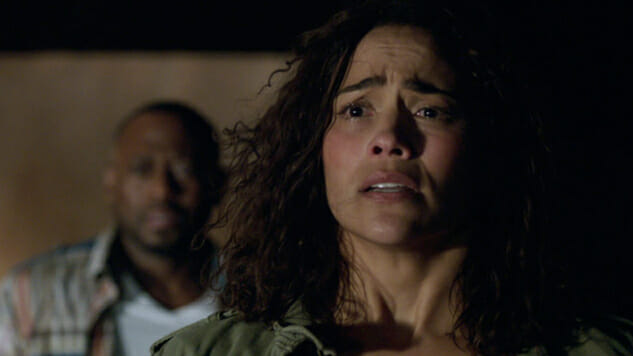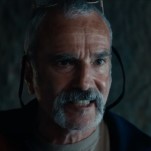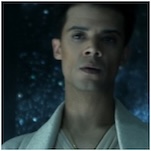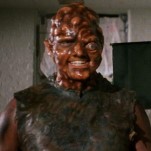Traffik

It could be easy to come to the conclusion that Traffik is a morally reprehensible movie that exploits the real-life horrors of sex trafficking in service to a flippant mainstream thriller. Yet, there doesn’t seem to be any insidious motivation behind writer/director Deon Taylor’s vision for his film, no purposeful undermining of the real impact of sex slavery by coating it in a veneer similar to what can modestly be described as a highly eroticized, run-off-the-mill basic cable home invasion thriller. It’s misguided, not nefarious.
It’s obvious that Taylor truly wanted to create awareness for the horrors of human trafficking, not only evidenced by the on-screen text that at the end of the film that lays out some distressing numbers, but also by the heavy-handed connections he makes between modern sex slavery and the slavery of Africans. It’s obvious too that he wanted to produce a glossy, familiar thriller, one whose borderline-pervasive male gaze is constantly fixated on Paula Patton’s naked or scantily dressed body via slithering tracking shots and close-ups.
Traffik could have worked as a satisfying genre exercise were it not so bluntly invested in integrating such a delicate subject. Anyone who’s seen their share of home invasion movies can easily predict every single plot point pretty much right after the opening credits. Attractive couple John (Omar Epps) and Brea (Patton) drive to a secluded dream home for a quick vacation, during which John plans to finally pop the question. After an awkward interaction with central casting racists at a gas station, and a ridiculously unnecessary car chase, the two make it to the house only to discover that a girl Brea met at the station left her phone in her purse.
-

-

-

-

-

-

-

-

-

-

-

-

-

-

-

-

-

-

-

-

-

-

-

-

-

-

-

-

-

-

-

-

-

-

-

-

-

-

-

-








































